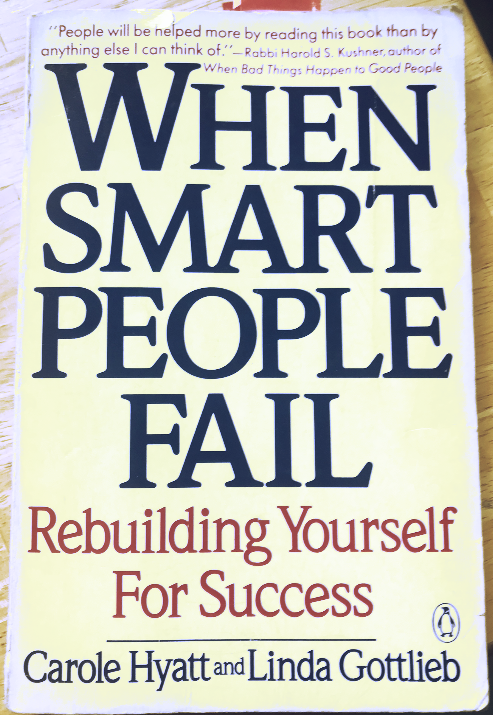|
For the longest time felt like I didn’t fail at things. I was brought up with the mindset that if something is doable, it cannot be hard. A mindset which compels you to find harder and harder challenges. That all changed when Flex, the Techstars company I co-founded didn’t work out. It broke me. What surprised me was that the network, “give first” and all of the opportunity that comes with it is great when you’re on the up but awkward, uncomfortable and at times “crickets” on the down. Part of this I now realise is because when you’re in failure mode, you’re insufferable to everyone around you. You carry this huge weight on your shoulders that you put on others every time you meet like a wounded animal, limping around looking to be put down. I’m not sure if everyone has gone through this, but for me I suffered through thoughts like: Will I be ever successful? Will I ever be happy? Will I ever have another good idea? Was my idea good? Can I have good Ideas? Can I be good at anything? I came to learn these can be called cognitive distortions, and the best way to stop them is to write them down and use reason and logic to disprove them. Everyone just tells you its okay, put in their perspective, you’ll work it out - This whole experience was incredibly frustrating, how could a non founder possibly relate to the level of aspiration I had taken away from me. What is a well meaning attempt at helping often comes across as people shrugging you off. There was a limit to what my coach could do because I convinced myself he hadn’t experienced it. How could he possibly understand what was left behind after this huge emotional debt bubble deflated. I sought out others who’s companies had died, or who had been ousted from their own boards but it was hard to match with other failures because it was either a sufferfest of two people feeling sorry for themselves or one of you values success more than the other and you judge the others’ failure. I didn't grieve, I tried to re-inflate the bubble inside me. I didn’t get angry, I just wanted to get better, I just wanted to feel better without putting in the work. I turned to reading, thinking that with over a century of modern business practices surely titans have recovered from this. Reading a gazillion business biographies, literature I now know to pop science schlop, did not help. In fact it made it worse. I remember reading Lean In and it slid me into depression. How did Sheryl Sandberg career magically line up at the end? Was I on the right track? How do I get on track? Where is the track? What is the track? I would openly talk about imposter syndrome to explain why I approached work and decisions the way I did, and came to learn that:
For me, the voices in my head eventually did die off. Normalcy came about a year later when I realised I was talking about and writing about my experiences from a perspective of wisdom rather than re-hashing scar tissue. Serendipitously after this point, I was gifted the book - When Smart People Fail by another Techstars founder whose grandmother had gifted her the book after she had experienced a set back. A set back which ultimately led to the founding of her Techstars company. Where was this book when I failed? While a subjectively unnecessary read, I read it anyway. In my personal opinion, it was probably the best thing I’ve ever read on dealing with personal failure. I think it would have saved me months of anguish had I read it earlier, and while I truly love helping entrepreneurs and makers - my goto advice now, when someone has experienced failure and is looking for guidance is - read this book. I think Techstars should gift this to every founder that fails, whether they leave their company, are forced out or go insolvent. Between stories of failure, to understanding the core stages of grief that one must go through - there is something in the book for everyone. Key things the book taught me:
The third point is something I embraced over the year that followed. Clearly others think I have experience/advice/wisdom/ideas to share so there is value there and it made it all much less painful. If success is binary, those of us who don’t make it, lose many years of our lives for nothing. This is a stance I fully reject and I thank Jen and the book for really teaching me this. In full realisation of this final point - I’m committing to my failures in public. We’ll see how long I can keep it up for, but for every project that didn’t hit the goal, the ideas that crash landed and the products that went unloved I’m keeping a record because these failures are not a waste of life, they are the stepping stones that when looking back in 20 years will all make sense. Show me someone without failure and I’ll show you someone without learning. Thanks to everyone that listened to me moan for a year about my failures.
A special thanks to fellow Techstars founder Sarah Tuneberg who gave me perspective through the journey, Techstars founder Jen Saxton who gifted me “When smart people fail” and my wife for supporting me while I put myself back together.
0 Comments
Leave a Reply. |
Archives
June 2024
Categories
All
|



 RSS Feed
RSS Feed